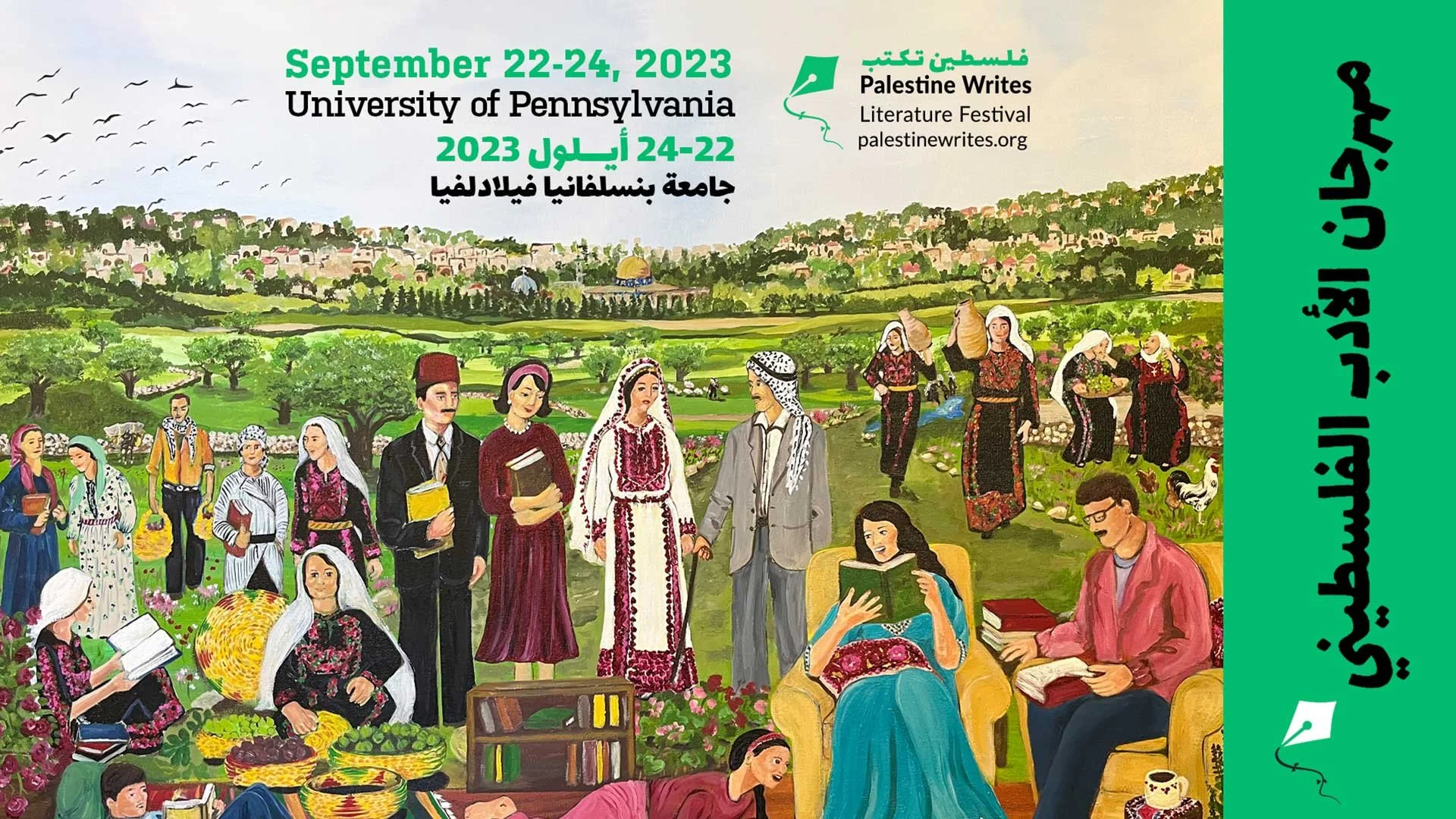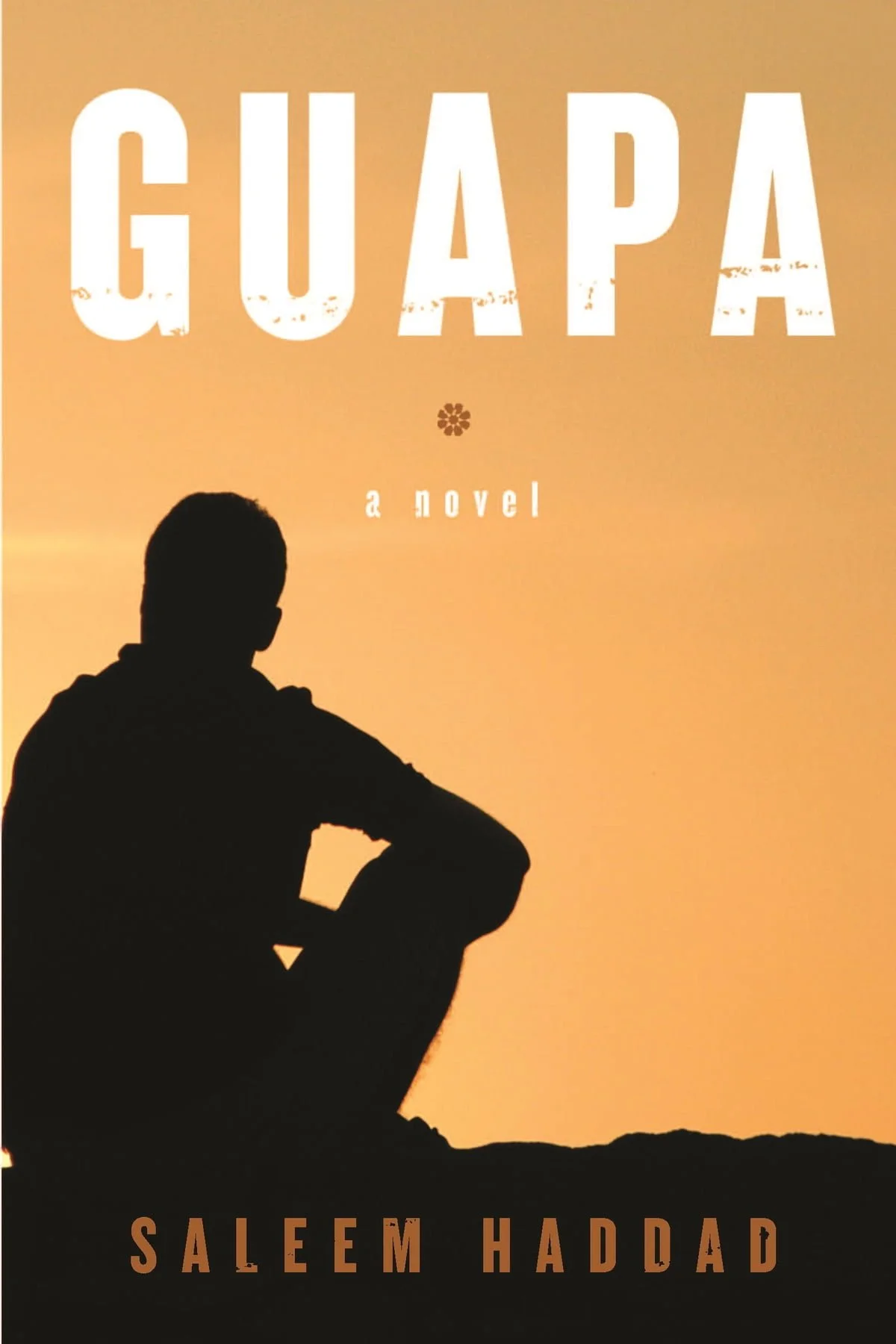Palestinian Writers Set to Converge at Penn
Heather Tenzer
Beginning September 22nd, Palestinian writers from around the world are slated to converge in Philadelphia at Palestine Writes. For three days, the literature festival will host readings, dabka dance performances, crafting for kids, talks, and panel discussions at the University of Pennsylvania.
The festival, of which Al-Bustan is a sponsor, first took place in 2020 as an entirely virtual event. Since then, it has been a labor of love made possible thanks to the work of a core team of organizers who have been with it since the beginning, says the festival’s executive director Susan Abulhawa.
“The festival is critical because Palestinians are an ancient society with lots of stories and we are literally being erased off the map,” according to Abulhawa, a Pennsylvania-based author of several books including international bestseller Mornings in Jenin.
Image courtesy of Palestine Writes
In advance of the festival, Al-Bustan caught up with one of its participants, Saleem Haddad. Haddad’s first novel, Guapa, published in 2016, is a personal and political coming of age story about a young gay Arab man living through the Arab Spring uprisings. “I’m excited to have a safe space with other Palestinians and allies of Palestine to be able to just exist and meet people and form connections and learn from each other,” Haddad tells Al-Bustan.
The Lisbon-based novelist was born in Kuwait City to an Iraqi-German mother and a Palestinian-Lebanese father. “I have a lot of different connections to different parts of the Arab world,” says Haddad who lived in Cyprus and Jordan after his family fled Kuwait during the Gulf War. His family now lives in Lebanon. “My relationship to Palestine is a particularly important one because this [feeling of] estrangement is very common to Palestinians. I connect with Palestine and Palestinians through that, and through my grandmother, who is Palestinian. Growing up, we would always hear stories about Palestine. So, out of all of my backgrounds and the places that I’ve lived, it's the idea of being Palestinian that feels the closest to my heart.”
Photo courtesy of Saleem Haddad
In addition to writing Guapa, which was awarded a Stonewall Honour and the 2017 Polari First Book Prize, Haddad wrote several short stories and essays about Palestine. Within them, he specifically explores his relationship to Palestine through his grandmother.
“Some of the themes that are important to me and that emerge a lot in my work are the links between the personal and the political in a person's identity and how they relate to the world and how they relate to different people,” Haddad says. Additionally, Haddad is drawn to stories about LGBTQ+ Arabs where he finds that themes of estrangement continue to emerge.
“Both estrangement from yourself, from your family, from your country, from your community, but also from your own body and from your own desires,” Haddad explains. “So, I find that a lot of my characters battle with this sense of exile and estrangement from themselves in these different capacities.”
Before moving to Lisbon six years ago, Haddad lived in London, where there is a sizable Palestinian community. “It was great because I felt very much at home within that community,” he says. “And in a sense, my Palestinian identity did not feel so under attack.” But living in Portugal, where the Palestinian community is tiny, has made Haddad prouder and more vocal about being Palestinian.
“It's funny, you know, in Lisbon, I do feel this hunger for connection with other Palestinians that I didn't feel as strongly when I was living in London,” he says. “I think sometimes there's this tendency to kind of either normalize or erase your identity as a Palestinian and I can sometimes feel like it's either an invisible identity or one that is just really not understood and not known. And that can really put me on the defensive.”
During a panel at Palestine Writes, Haddad is slated to be in conversation with authors Alexa Firat, Hala Alyan, and Isabella Hammad about the ways in which their storytelling is rooted in exilic experiences. For Haddad, the event is a unique opportunity. “For Palestinians, given our history and the fact that we've been displaced, it's very rare to be in community with Palestinians physically in this way. For a large part of my life, the Palestinian community has been an imagined community that doesn't really have a strong physical component. So, I'm excited to be in a physical space with a large number of Palestinians.”
––––––
Heather Tenzer is a Philadelphia based writer, journalist and filmmaker. She is the director of the forthcoming documentary The Rabbis’ Intifada, about a community of Orthodox Jews speaking out in support of Palestinian liberation. Tenzer has been supported by grants and fellowships from Yaddo, the Jerome Foundation, the New York State Council on the Arts, and the Queens Council on the Arts.




